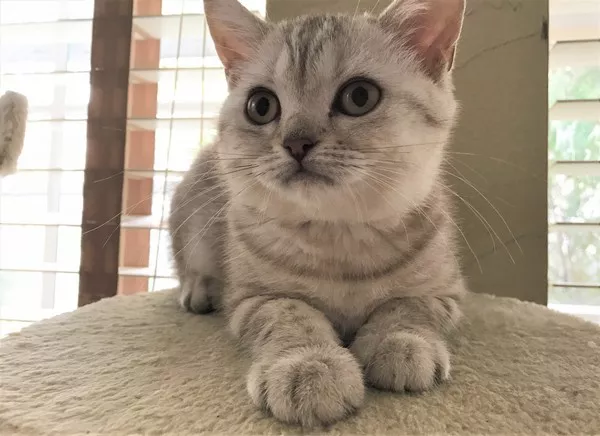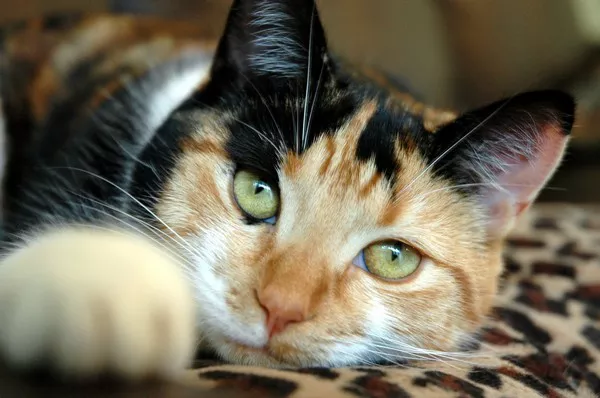Bringing home a British Shorthair kitten is an exciting experience. These adorable little bundles of fur require special care, including a proper diet that meets their nutritional needs for growth and development. In this article, we will discuss the dietary requirements of British Shorthair kittens, including what to feed them, how often to feed them, and important considerations for their overall health and well-being.
1. Understand the Nutritional Needs of British Shorthair Kittens:
Before diving into specific foods, it’s crucial to understand the nutritional needs of British Shorthair kittens. Like all kittens, they require a balanced diet that provides essential nutrients such as proteins, fats, carbohydrates, vitamins, and minerals. However, British Shorthairs have unique dietary needs due to their muscular build and potential predisposition to certain health issues.
2. Choose Quality Kitten Food:
When selecting food for your British Shorthair kitten, opt for high-quality commercial kitten food specifically formulated for their age and breed. Look for brands that meet the Association of American Feed Control Officials (AAFCO) standards. These diets are designed to provide the right balance of nutrients for healthy growth and development.
3. Ensure Adequate Protein Intake:
Protein is essential for the growth and maintenance of a British Shorthair kitten’s lean muscles. Look for kitten food with animal-based protein sources like chicken, turkey, or fish. The primary ingredient should be a high-quality source of protein, and it’s best to avoid foods with excessive fillers or by-products.
4. Consider Special Dietary Requirements:
British Shorthair kittens may have specific dietary requirements due to their breed characteristics. They are prone to developing urinary tract issues, so it’s important to provide them with a diet that promotes urinary health. Look for kitten food labeled as “urinary health” or “low magnesium” to minimize the risk of urinary problems.
5. Incorporate Healthy Fats:
Fats are a crucial energy source for kittens and aid in the absorption of fat-soluble vitamins. British Shorthair kittens benefit from diets that include healthy fats like omega-3 and omega-6 fatty acids, which contribute to their shiny coat and overall skin health. Look for kitten foods that contain fish oil or flaxseed as sources of these beneficial fats.
6. Provide Balanced Meals:
It’s recommended to feed British Shorthair kittens multiple small meals throughout the day rather than leaving food out all the time. Follow the feeding guidelines provided on the kitten food packaging and adjust the portions based on your kitten’s individual needs. As they grow, gradually transition them to a regular feeding routine with fewer meals per day.
7. Introduce Wet and Dry Food Options:
Offering a combination of wet and dry kitten food is beneficial for British Shorthair kittens. Wet food helps keep them hydrated and provides variety in texture and flavor. Dry food, on the other hand, can help maintain dental health by reducing plaque buildup. Ensure both options are nutritionally balanced and monitor portion sizes to prevent overeating.
8. Stay Hydrated:
Proper hydration is crucial for British Shorthair kittens, especially those fed primarily dry food. Always provide fresh, clean water in a shallow dish and regularly change it throughout the day. Additionally, consider incorporating wet food or adding water to dry food to increase moisture intake.
9. Avoid Harmful Foods:
Certain foods should be avoided as they can be toxic or harmful to kittens. These include chocolate, caffeine, alcohol, onions, garlic, grapes, raisins, and artificial sweeteners. Additionally, avoid offering cow’s milk as most kittens are lactose intolerant. Stick to specially formulated kitten milk replacers if necessary.
10. Monitor Weight and Adjust Portions:
British Shorthairs have a tendency to gain weight easily, so it’s important to monitor their weight and adjust their portions accordingly. Do not free-feed or overfeed your kitten, as obesity can lead to various health issues. Consult with your veterinarian for guidance on portion sizes and monitoring your kitten’s growth.
Conclusion:
Proper nutrition is essential for the healthy growth and development of British Shorthair kittens. By providing a balanced diet that meets their unique nutritional needs, you can ensure they thrive both physically and mentally. Remember to choose high-quality kitten food, offer a combination of wet and dry options, and monitor their weight and hydration levels. With the right nutrition, your British Shorthair kitten will grow into a happy and healthy adult cat.

























